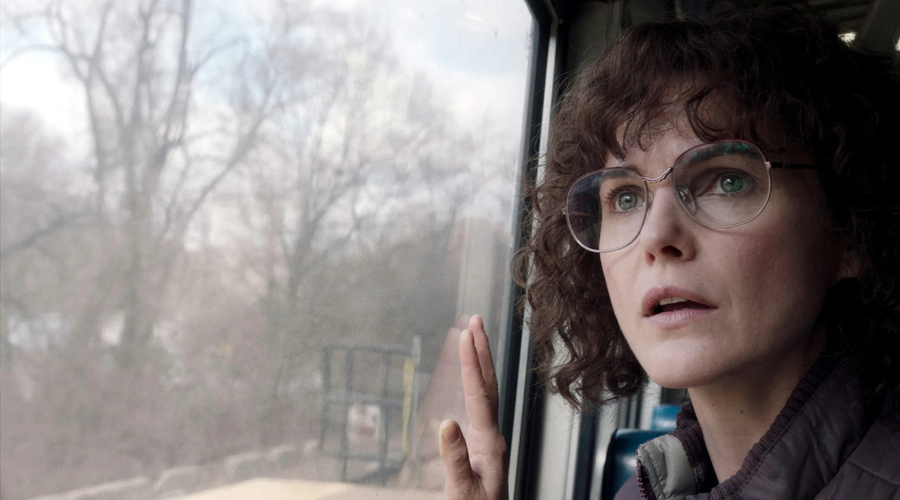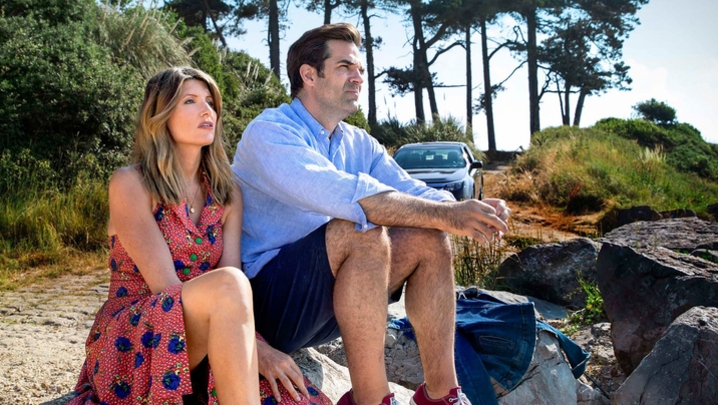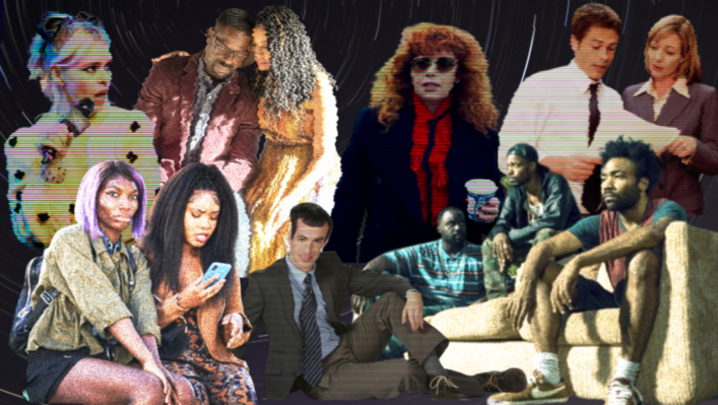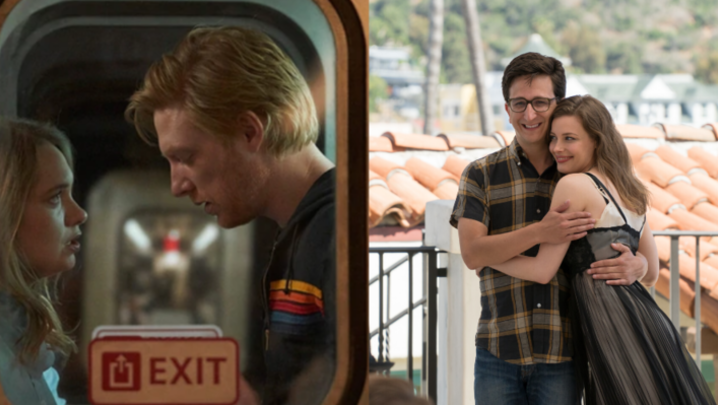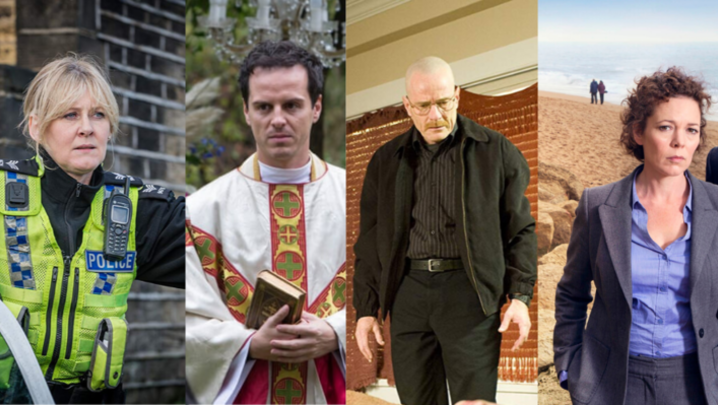We often become so attached to a series and its characters that when it ends it feels like a break-up.
A finale, then, is a touchy affair, as the emotional stability of a show’s entire fandom rests in the palms of the showrunners’ hands. And if you think I’m exaggerating, just ask a Game of Thrones fan what they thought of The Iron Throne.
That was an extreme case but it did prove the power of a finale to tarnish a show’s legacy (although House of the Dragon is so far doing some good damage limitation). Here, however, we take a look at the ones who secured theirs.
Needless to say, the SPOILERS abound.
Fleabag
Series Two, Episode Six
“This is a love story,” proclaims Fleabag (Phoebe Waller-Bridge) in the first episode of the second and last series. And it is, but not just about her steamy affair with a ‘hot priest’ (Andrew Scott).
When we first met Fleabag she was paralysed by guilt over the suicide of her best friend Boo (Jenny Rainsford), whose boyfriend she slept with in the affair that pushed her over the edge. And although it gave us some of the biggest laughs, she was carrying around the fourth wall like an emotional crutch, breaking it at will to both escape her reality and package it for the validation of the audience.
But then, in series two, along comes the priest who sees through the dissociation and loves Fleabag for who she truly is. He may recommit to the celibate life of priesthood in the end, but the final shot hits a high note as Fleabag waves goodbye to the wall (us) and everything it stands for: the past, her guilt and her need for validation. It is the perfect ending to the love story, as she finally loves herself enough to go it alone.
The Wire
-30-
The Wire was a series about society and its vicious cycles - of power and corruption, poverty and crime – and the dysfunctional institutions that can’t help but perpetuate them. By sealing the fates of its many characters, most of whom are lost to those same cycles, its finale fittingly, if painfully, concluded the thesis.
Power corrupts even the idealist Mayor Tommy Carcetti (Aidan Gillen), Lieutenant Daniels is promoted to Police Commissioner but promptly dismissed for refusing to juke the crime reduction stats, and just as Bubbles (Andre Royo) seems to be kicking his heroin addiction, Dukie (Jermaine Crawford) falls into the clutches of the same disease.
But what is perhaps most memorable is the stark, four and a half minute closing montage that revealed the tragic stasis of the main character: that microcosm of modern America that was the city of Baltimore. So much happened across the five series, but so little changed. It’s no wonder the series still resonates today.
Catastrophe
Series Four, Episode Six
From the moment Sharon and Rob launched into their wild, one-week-stand, Catastrophe was a riot, even after it ended in an accidental pregnancy that was just the first of many catastrophes to come. Sharon Horgan and Rob Delaney were a comedic match made in heaven, but while the zingers flew, they also found some deeper truths about long-term relationships.
The finale sees them arrive in Boston for a family holiday only to be greeted with the news that Rob’s mother, Mia (the late Carrie Fisher), has died. It’s the funeral that’s the cause for conflict that brings unresolved issues to the surface, but they are not all resolved as in your run-of-the-mill sitcom. After the funeral, they do make peace, but the series ends with a beautifully bittersweet leap of faith.
Despite the sign warning of lethal rip tides, Rob joins Sharon for a dip in the sea, just as they choose to dive head first into the choppy waters of marriage and parenthood with no shore in sight.
Lost
The End
Lost was a series of such ambitious scale and scope, its every episode multiplying the mysteries, that wrapping it all up arguably posed the showrunners a greater challenge than surviving on a perilous desert island.
Their brave resolution was to abandon logic and coherence for the emotional and metaphysical, prioritising payoffs over the spelling out of the unexplained mythology. Jack and Locke (Terry O’Quinn) finally get their showdown, Jack (Matthew Fox) and Kate (Evangeline Lilly) finally get together and Sawyer (Josh Holloway) plus a lucky few finally leave the Island.
In total The End ran for an epic two and a half hours across two timelines, the natures of which were also revealed in one last mind-bending twist. The ‘flashsideways’ turns out to be a pan-religious purgatory for remembering and letting go of your past life and those you shared it with. One by one the survivors are drawn to a church that was to be the site of Jack’s father, Christian’s (John Terry), funeral, where they reunite for a final farewell and the ultimate catharsis for characters and viewers alike.
The Office
The Office Christmas Specials
Between David’s (Ricky Gervais) redundancy and Tim’s (Martin Freeman) humiliating rejection, the second series of The Office had all ended in tears. Thankfully Ricky Gervais and Stephen Merchant took mercy on the paper merchants the following year, bringing back the series for a two-part Christmas special and a much brighter ending for all.
An office Christmas party sets the scene for a reunion, which sees David finally find a woman and, most monumental for him, get a laugh from his colleagues. But there was only really one thing we wanted, and that was for Tim and Dawn to walk off into the sunset. Which they do, albeit into the spinning lights of a budget disco ball.
On the surface it was just another will-they-won’t-they TV romance, but set against the bleakly unromantic backdrop of the Slough branch of a paper company, it meant so much more.
I May Destroy You
Ego Death
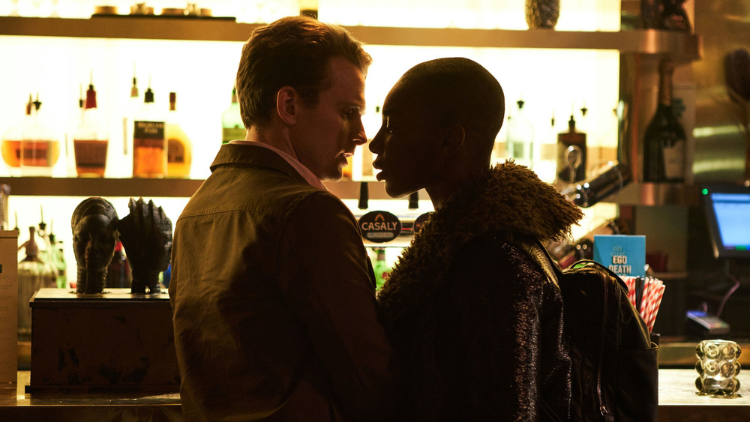
I May Destroy You, Michaela Coel’s RTS Award-winning drama based on her own sexual assault, ends with the most profound of thought experiments.
Having spotted her assailant, David, at the eponymous bar and scene of the crime, Arabella (Coel) weighs up her options in an episode which cleverly doubles as a deconstruction of Coel’s creative process.
She ultimately chooses not to continue the cycle of vengeance, but neither does the perfect world exist where justice is served. She chooses instead to stay at home with Ben watching YouTube videos about loneliness, an ending which blindsides with its hard-won empathy but is no less empowering for all its peacefulness.
The fact that Coel was writing through her own trauma makes it all the more inspiring.
Breaking Bad
Felina
By the finale of Breaking Bad, Walter White (Bryan Cranston), the chemistry teacher turned crystal meth kingpin, had cut all personal ties and escaped to New Hampshire. But through Walt’s daring return to Albuquerque, the showrunners set about tying up all loose ends and firing every Chekhov’s gun.
Walt manages all of establishing a trust fund for his son, hand delivering his wife Skyler (Anna Gunn) leverage for a favourable plea bargain and, in a poignant goodbye, admitting to her that his second life as the high-octane “Heisenberg” was purely a selfish act. The episode even satisfied any remaining bloodlust with Walt’s epic gun-in-the-trunk escapade to free Jessie (Aaron Paul) from slavery under the Aryan Brotherhood.
When he takes a lethal bullet, you’d be forgiven for thinking justice had been too neatly served. But judging by the smile on his face as he bleeds out, it’s clear that Walt gets the hero’s death he always wanted. Breaking Bad stayed true to its morally ambiguous form until the very end.
Friends
The Last One
“I got off the plane.” Has there been a more memorable end to a will-they-won’t-they than that nailbiter of a voicemail Rachel (Jennifer Anniston) leaves for Ross (David Schwimmer)? To keep us emotionally invested in the couple across 10 series was no mean feat, let alone to give it the culmination it deserved. Yet those five words are now etched into TV folklore.
In among all the happy endings, though, was some real heartbreak. And I don’t just mean Chandler (Matthew Perry) leaving Joey (Matt LeBlanc) and their ducks behind for family life in the suburbs. Lest you forget, Gunther (James Michael Tyler) almost beat Ross to the punch when he confessed his love for Rachel, only for her to lovingly turn him and his hair “brighter than the sun” down.
One by one the gang hand back their keys to the iconic apartment that “because of rent control was a friggin’ steal,” says Chandler, in a goodbye scene that hits even harder amid today’s cost-of-living crisis.
The Americans
START
The Americans certainly had its bloodthirsty moments, but its finale played out with a zero body count and was no less tense and moving than any of the episodes which came before.
It did so by condemning most of the main characters to fates worse than death. Poor Stan Beeman, for one, whose perfectly-scripted, long-awaited confrontation with the Jenningses is utterly soul-destroying given that his capacity to trust is clearly broken beyond repair.
And that was just one of the many heart-in-the-mouth moments: how about that impossible last phone call with their son Henry as they prepare to ghost him? Or that tension and release and blindsiding reveal when Paige abandons her parents on the train to Canada (cut to an epically on the nose “With or Without You” needle drop)?
The pitch-perfect finale parts on a plaintive note as Philip and Elizabeth look out across the country they gave their lives to, safe at last but mourning all they’ve lost. Just as we are mourning the loss of one of the all-time great series.
Better Call Saul
Saul Gone
Breaking Bad had us thinking we knew how Better Call Saul would end. After all, we first met Jimmy McGill in full garish Saul Goodman get-up, providing the baddest of the bad with legal counsel.
But as the prequel laid bare his tragic past as Jimmy the small-time lawyer, we still found ourselves rooting for him to stay on the straight and narrow. As we did with Kim Wexler, his partner in life but also, fatally, crime.
Series six saw them hatch the scheme that would be their undoing, and by the finale they are long estranged and living miserable existences. But the showrunners brought us back from the brink of despair by bringing the love story full circle, as it’s ultimately love that sparks their redemption. Jimmy takes the fall for all of it, which lands him in jail for 86 years, and it’s there that the two meet for a last cigarette in a masterful sequence of call-back shots from the ones who, in Saul, brought pure cinema to the small-screen.

